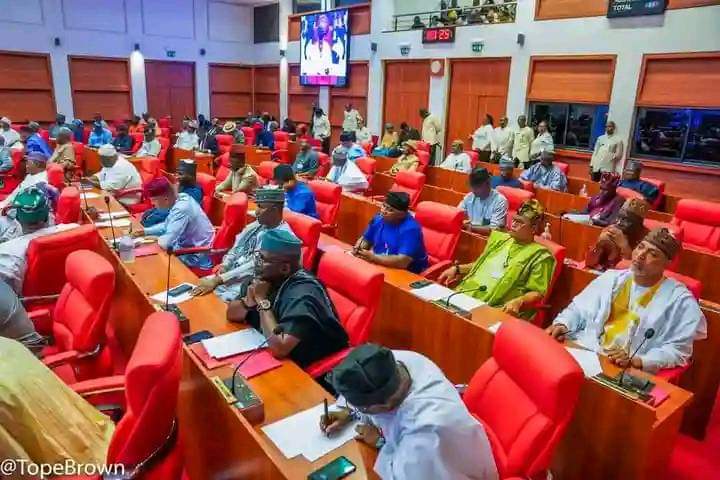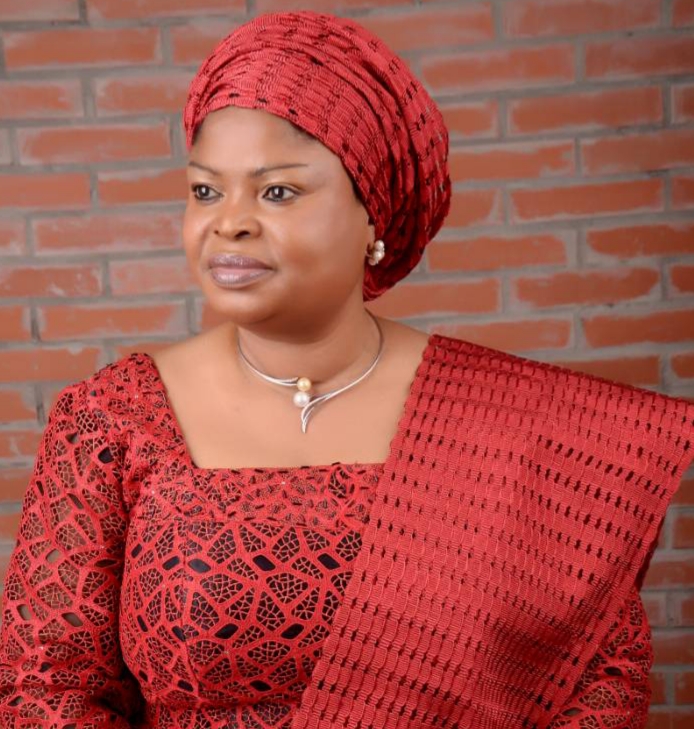By Sunday Isuwa, Abuja
The Senate has decried the lost of over N10 billion by ginger farmer in Southern Kaduna, Kaduna State and called on the National Emergency Management Agency (NEMA), to provide relief materials.
Also, the Senate mandated the Federal Ministry of Agriculture and the Nigeria Centre for Disease Control (NCDC) to move into Southern Kaduna and tackle the disease.
This followed a motion sponsored by Sunday Marshall Katung (PDP Kaduna South) on the urgent need to address the outbreak of a deadly disease affecting ginger production in Southern Kaduna.
Katung said ginger has been grown in the Southern part of Kaduna State since about 1927, and it has steadily increased in its importance as a valuable commodity over the intervening years.
“Further notes that Kaduna State ranks the highest in ginger production in Nigeria, contributing to Nigeria’s place as one of the largest producers of ginger in the world, with a production average of more than 300,000 tonnes during the five-year period 2014-2018, and a global market share of about 11 per cent, trailing only India;
“Cognizant that as a subset of the agricultural sector, ginger production has a significant impact on revenue generation and farmers income, thereby reducing the rate of poverty amongst the local farmers of southern Kaduna and the country at large;
“Also cognizant that apart from its revenue generating potential, the consumption of ginger has many health benefits ranging from the prevention of stomach ulcers, the reduction of nausea and vomiting amongst pregnant women, to chemotherapy treatment for cancer patients;
“Worried that the 2023 ginger season in Southern Kaduna State has suffered a significant setback due to an outbreak of fungi pathogens infection destroying over 2,500 hectares of farmlands estimated at 10 Billion Naira across seven Local Government Areas of southern Kaduna State, thereby significantly threatening Nigeria’s position on the world chart of ginger production;
“Also worried that this devastating and unprecedented ginger pandemic affects Nigeria’s non-oil export performance and is already affecting the lives of many individuals within the affected communities of southern Kaduna because ginger is their source of livelihood;
“Disturbed about the public health risks of this deadly disease because research has revealed that organisms that affect plants may develop some sort of host jumping, with the mutation or development of the mechanism switching over to the host, and the pathogen that was earlier infecting plants changing and infecting human beings,” Katung said.
But the Senate mandated its Committee on Agricultural Production and Rural Development to interface with the hierarchy of the National Agricultural Quarantine Services and its supervisory Ministry, the Federal Ministry of Agriculture and Food Security towards conducting an immediate on- the-spot assessment tour of all affected areas of the ginger pandemic in Southern Kaduna state.
Also, the Senate called on the Nigeria Centre for Disease Control and Prevention to immediately coordinate surveillance systems to collect, analyze and interpret data on this disease, towards the prevention of further spread or phytonosis.
The red chamber also mandated the National Emergency Management Agency (NEMA) to immediately, and as a matter of particular urgency, provide palliatives to the affected ginger farmers of Southern Kaduna whose means of livelihood has been completely crippled by the disease that has destroyed their production of the rhizome.
Seconding the motion, Sen Babangida Husaeini (Jigawa) said Kaduna South is producing a high quality ginger which is highly rated in the middle east and other continents.
“We should accord this motion the urgency it requires so that the ginger sector is not hampered,” he said.
Also, Titus Zam (Benue North) said producers of ginger in Southern Kaduna should be protected adding that it is the only way the naira will improve its export capacity.
“People are talking about oil and gas, others are talking about agriculture. It makes sense to support our ginger farmers in Southern Kaduna. It will add more weight for a shift to agriculture,” Zam said.
Also, Kelvin Chukwu (Enugu East) said Southern Kaduna is the highest producer of ginger and the third in the world adding that the effect of the disease affected the farmers while others collapsed on hearing of the disease.
“Their economy has been affected. Something urgently must be done,” Chukwu said.
On his part, Anthony Yaroe (Gombe South) said apart from the health benefits of the ginger, added that it helps Nigeria in exporting products.
“Issues of the disease should be looted at. But not only that, the disease has economic devastation because it will affect Nigeria’s export capacity,” he said.
“If we improve the ginger sector, we will increase the value of the naira. The disease has not happened before. This is the first time but the devastation is high and our agencies must look at the disease critically and assuage the sufferings of the farmers.
On his part, Senator Darlington Nwokocha said since Nigeria is talking about the economy and employment, research and development of some of these cash crops sectors must be seriously looked at.
“If you go through the budget, you will find out that what we provide for research is too little. As the budget is coming, we have to strengthen the research institution and start on time and tackle this situation before it happens,” he said.
Senate President Godswill Akpabio thanked Katung for a beautifully worded motion adding that it was professional.
Akpabio told all the agencies to look at the issues relating to the ginger disease in Southern Kaduna and tackle them.
“NEMA should move in there and provide relief materials,” Akpabio said.











